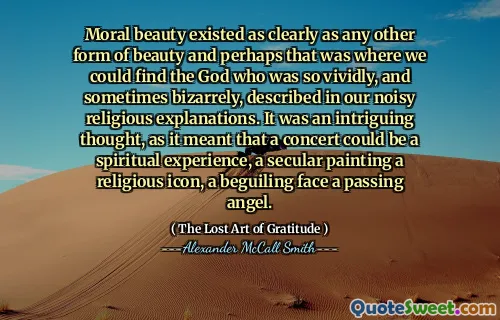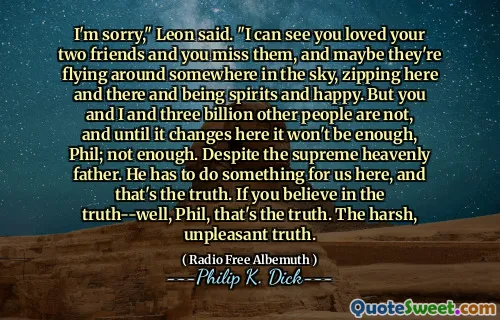
It is closer to the truth to say that God is crazy than that God is reasonable. I suspect God merely smiles when someone calls him crazy, but shakes His head and frowns when someone calls Him reasonable.
This quote challenges conventional notions of divinity and human understanding by suggesting that spiritual truth may be beyond logical boundaries. The idea that God could be 'crazy' might initially feel provocative or irreverent, but it serves as a metaphor for the transcendent nature of divine consciousness. Human reason tends to seek order, predictability, and coherence—attributes of what we consider reasonable. Yet, the divine may operate beyond these constraints, embodying qualities that seem irrational or incomprehensible to our limited perspective.
The suggestion that God 'smiles' when called crazy, but frowns when deemed reasonable, implies that divine humility and humor exist in recognizing the limitation of human labels. Calling God 'reasonable' could imply constraining the infinite into finite categories, which might offend or disappoint the divine because it diminishes divine mystery. Conversely, embracing God’s 'craziness' might open us to a more genuine, awe-inspiring experience of the divine reality—one that may defy human logic but resonates more profoundly with the unpredictability and wonder of existence.
This reflection invites a reconsideration of how we perceive the divine's actions in our lives. Rather than insisting on divine reasonableness, which might lead to disillusionment or unmet expectations, acknowledging a divine 'craziness' encourages humility and fosters an openness to the unpredictable ways in which life and spiritual growth unfold. It emphasizes that divinity surpasses human comprehension and that respect and awe are more appropriate responses to what lies outside our rational grasp.
In the context of the book '(Jesus - Shock)' by Peter Kreeft, this perspective aligns with the idea that divine truth is often unsettling but ultimately liberating because it liberates us from our limited perspectives and invites us into a mysterious, awe-inspiring relationship with the divine.







